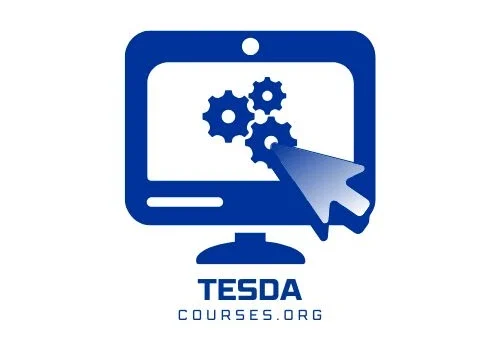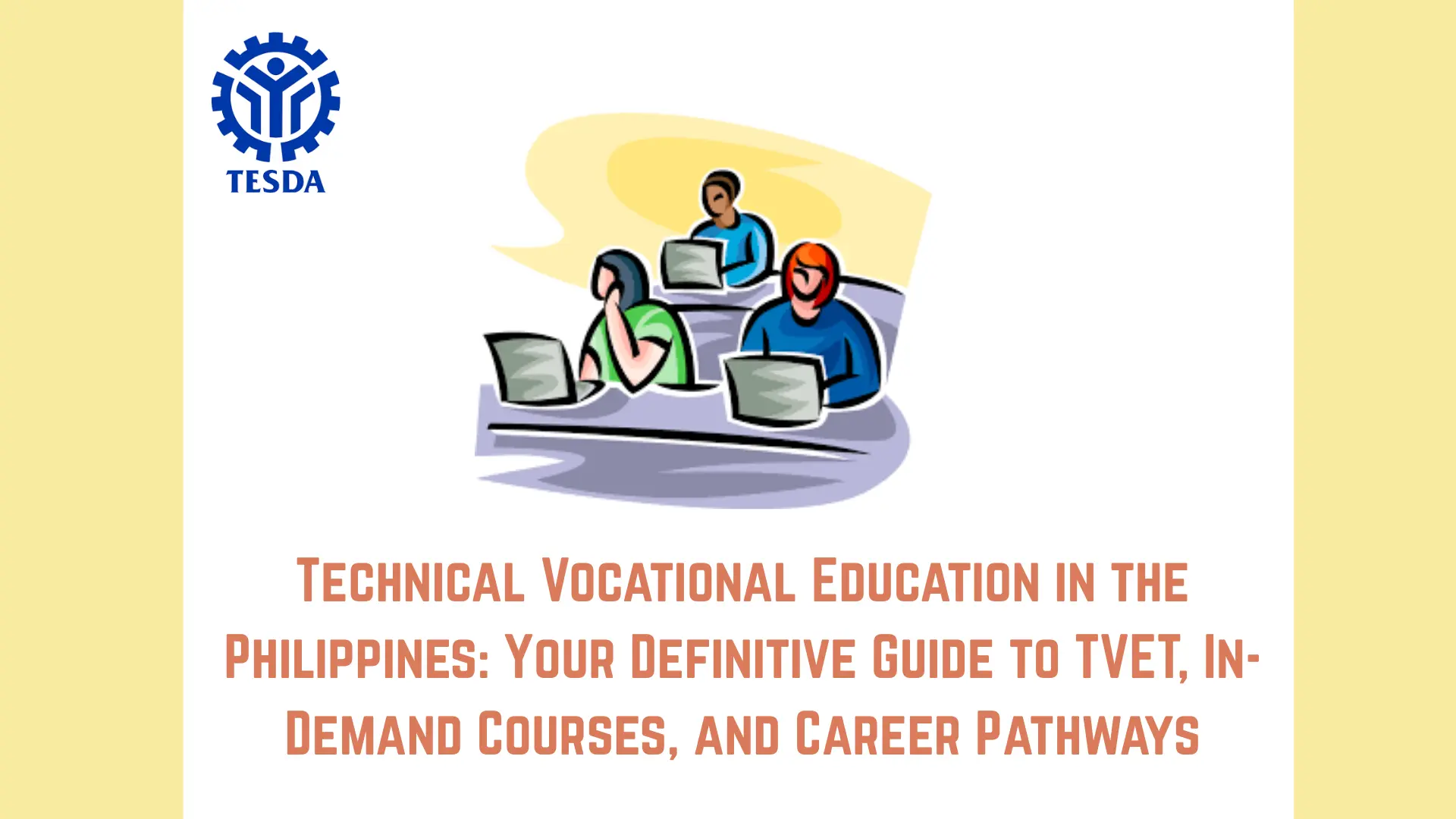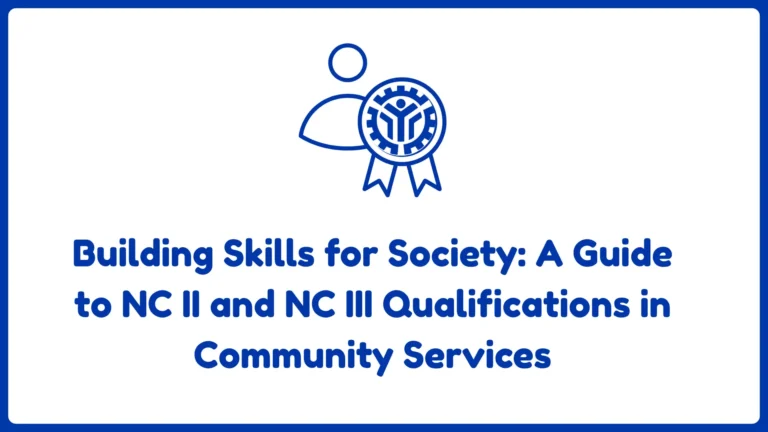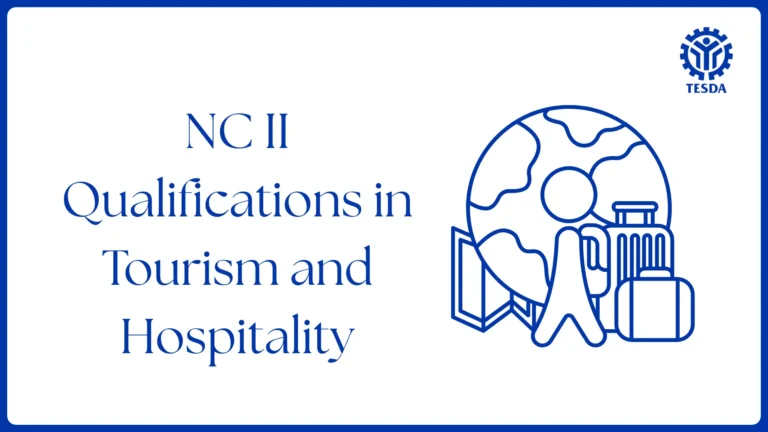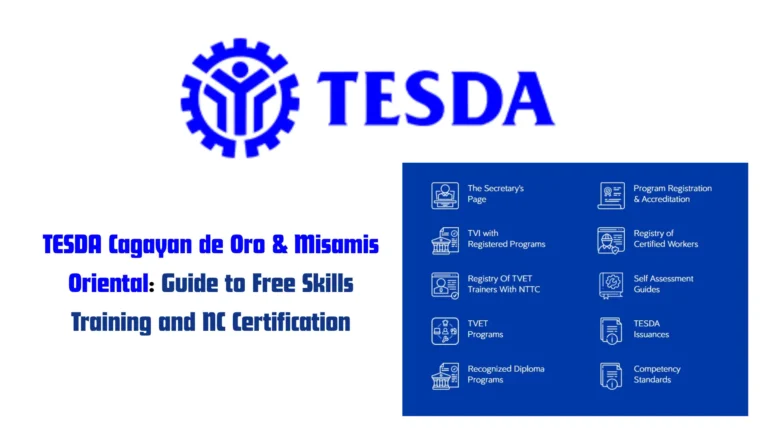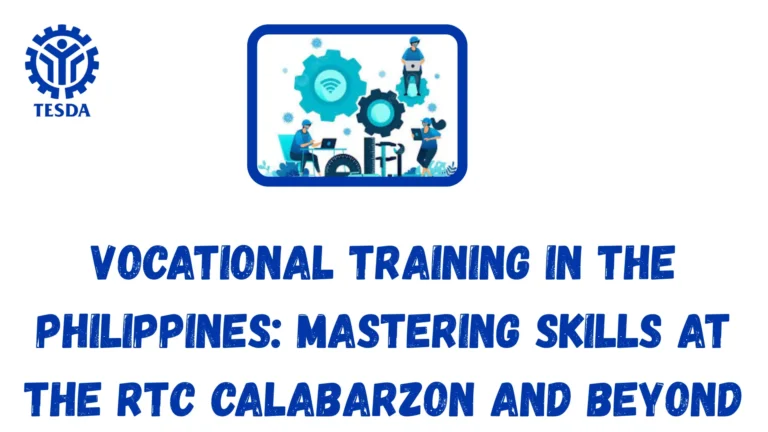Technical Vocational Education in the Philippines: Your Definitive Guide to TVET, In-Demand Courses, and Career Pathways
Introduction: The Power of Skills – Redefining Success in the Philippine Economy
Are you looking for Technical Vocational Education in the Philippines? In the dynamic landscape of the Philippine economy, a paradigm shift is underway. The traditional, singular focus on a four-year college degree as the only path to success is being powerfully challenged by the proven, practical, and high-impact pathway of Technical Vocational Education and Training (TVET). This educational sector is the engine room of the nation’s growth, producing the skilled workforce that builds infrastructure, powers industries, cares for communities, and drives innovation.
For many Filipinos, the terms “technical vocational,” “TVET,” and “vocational education” might seem unfamiliar or less prestigious than academic routes. This guide aims to dismantle those misconceptions and illuminate technical and vocational education in the Philippines as a strategic, efficient, and highly rewarding choice for building a sustainable career.
This definitive pillar page is your master resource for navigating the TVET ecosystem. We will start by answering the fundamental question: What is TVET? We’ll explore the technical vocational definition, explain the TVET meaning, and clarify ano ang TVET for a Filipino audience. We will delve into the journey of a TVET graduate, whose skills are in constant demand both locally and internationally.
Beyond theory, we will provide a practical compass for your educational journey. This includes exploring high-value fields like aircraft maintenance, detailing the aircraft mechanic tuition fee in the Philippines, and listing aircraft mechanic schools. We will break down the best 2-year courses in college in the Philippines, providing a list of courses that are truly in-demand. For those seeking flexibility, we will guide you through the world of online colleges and distance learning schools offering bachelor degrees online in the Philippines.
From the digital realm of graphic design courses to the precise world of an electronics technology course, this guide covers the vast spectrum of technical education. Whether your goal is to enroll in a government education program, find a graphic design school in the Philippines, or understand technical skills in Tagalog, this resource is designed to empower you with the knowledge to make informed decisions about your future. Your journey to becoming a highly skilled, certified, and sought-after professional begins now.
Demystifying the Framework: What is TVET?
To fully appreciate the opportunities within technical education, one must first understand its core concepts and terminology.
Technical Vocational Definition and TVET Meaning
The term TVET is an acronym for Technical Vocational Education and Training. It is an all-encompassing term for education and training that provides knowledge and skills for employment.
- Technical: Refers to the application of technology, techniques, and methods within a specific field. It involves hands-on, practical skills.
- Vocational: Derives from the word “vocation,” meaning a person’s employment or career. It is directly related to a specific trade, occupation, or vocation.
- Education and Training: Combines theoretical learning with practical, skills-based training to achieve competency.
Therefore, the technical vocational definition centers on education that is designed to prepare individuals for a specific trade, craft, or career at various levels. It is learning by doing, focused on applied—rather than purely theoretical—knowledge.
Ano ang TVET? Sa simpleng salita, ang TVET o Technical Vocational Education and Training ay ang pag-aaral na nakatuon sa paglinang ng mga praktikal na kasanayan para sa isang partikular na hanapbuhay o propesyon. Ito ay “hands-on” na pagsasanay na may kasamang teorya upang ikaw ay maging bihasa at magkaroon ng trabaho.
The TVET Graduate: A Profile in Demand
A TVET graduate meaning signifies an individual who has successfully completed a competency-based program and has been assessed as qualified to perform the tasks and duties of a specified job role. They are not just students who passed exams; they are professionals who have demonstrated their ability to perform to industry standards.
The value of a TVET graduate in the job market is immense. They are:
- Job-Ready: They require minimal on-the-job training, making them immediately productive for employers.
- Globally Competitive: Their skills, especially when certified under a Philippine National Certificate (NC), are recognized internationally.
- Adaptable: TVET programs are often shorter and more flexible, allowing graduates to upskill or reskill quickly in response to market changes.
The Philippine TVET Landscape: A Multi-Faceted Ecosystem
Technical and vocational education in the Philippines is a robust system primarily spearheaded by the Technical Education and Skills Development Authority (TESDA). However, it also involves other public and private institutions.
Key Players:
- TESDA: The government agency tasked with managing and supervising TVET in the Philippines. It develops Training Regulations (TRs), accredits institutions, and provides scholarships.
- Private Technical Vocational Institutions (TVIs): Thousands of private schools offer TESDA-accredited programs in fields like healthcare, IT, and hospitality.
- State Universities and Colleges (SUCs) and Local Universities and Colleges (LUCs): Many offer technical-vocational courses alongside their degree programs.
- Industry Partners: Companies often partner with TVIs to provide on-the-job training (OJT) and ensure the curriculum meets their needs.
Navigating Your Options: A Deep Dive into TVET Courses and Programs
The breadth of technical vocational training is vast. Here’s a breakdown of courses by duration and field to help you find your path.
The Allure of Short-Term Programs: 1-Year and 2-Year Courses
Short-term programs offer a quick path to employment. They are ideal for those who want to enter the workforce rapidly or add a specific skill to their repertoire.
In-Demand 2-Year Courses in the Philippines:
A 2 years course in college in the TVET context often refers to an advanced diploma or a program that may include both NC II and NC III levels. Searching for a list of 2 year courses in college philippines will yield high-value options. Here are some of the most in-demand 2 years courses in the philippines:
- Computer Technology: Leads to roles as a programmer, network administrator, or IT support specialist.
- Electronics Engineering Technology: Prepares students for careers in electronics manufacturing, repair, and telecommunications.
- Hotel and Restaurant Management: A classic pathway to supervisory roles in the booming hospitality and tourism industry.
- Associate in Health Science Education (Caregiving/Health Care): A comprehensive program that qualifies graduates for advanced caregiving roles here and abroad.
- Automotive Technology: For those aiming to become master mechanics or shop supervisors.
- Dental Technology: A specialized field for creating dental prosthetics like crowns and dentures.
1-Year Diploma Courses:
These are typically intensive programs focused on a specific skill set. A common search is for 1 year course in philippines or 1 year diploma courses in philippines. Examples include:
- Practical Nursing
- Diploma in Midwifery
- Culinary Arts
- Graphic Design (more on this later)
Spotlight on High-Value Technical Fields
1. Aircraft Maintenance: Soaring to New Heights
The aircraft maintenance course in the philippines is a premier, high-stakes program. How to become an aircraft mechanic in the philippines involves:
- Education: Completing a TESDA-accredited program (often a 2-year course) in Aircraft Maintenance Technology from one of the renowned aircraft mechanic schools philippines (e.g., Philippine State College of Aeronautics, Air Link International Aviation College).
- Licensing: After gaining the required work experience, graduates must pass a licensing exam from the Civil Aviation Authority of the Philippines (CAAP) to become a licensed aircraft mechanic.
- Investment: The aircraft mechanic tuition fee philippines is significantly higher than most TVET courses, often ranging from PHP 200,000 to over PHP 400,000 for the entire program, reflecting the advanced training and equipment required.
2. Electronics Technology: Powering the Modern World
An electronics technology course prepares students for a career in designing, maintaining, and repairing electronic systems and components. An electronics technology course philippines can be found at many TESDA-accredited electronics trade schools and universities. Graduates can work in consumer electronics, industrial automation, and telecommunications.
3. Graphic Design: Mastering Digital Creativity
The field of digital arts is booming. A graphic artist course or graphic design course philippines teaches skills in software like Adobe Photoshop, Illustrator, and InDesign. Many graphic design schools philippines offer short-term graphic design short courses that lead to a COC or NC, as well as longer diploma programs. This digital design class is perfect for creative individuals seeking careers in advertising, publishing, and digital media.
The Digital Evolution: Online and Distance Learning in TVET
The Philippine education system has embraced flexibility. The demand for online colleges, distance learning schools, and schools that offer online courses has never been higher.
Options for Online Education:
- Bachelor Degree Online Philippines: Several universities now offer full online degrees. A search for online college philippines or bachelor degree online philippines will reveal options from institutions like the University of the Philippines Open University (UPOU) and AMA University.
- Online Graduate Programs: For those seeking advancement, there are masters degree online programs philippines and specific programs like an online masters in education philippines.
- Cheap Distance Learning Colleges: Many SUCs offer affordable distance education programs. Checking the list of open university in the philippines is a great starting point.
- TESDA Online Program (TOP): While not for hands-on skills, TOP offers free online courses for the theoretical component of many qualifications.
Government Initiatives and Specialized Training Centers
The Philippine government actively promotes TVET through government education programs and educational programs in the philippines.
- TESDA Scholarships: Programs like TWSP and PESFA provide free tuition and allowances to qualified students.
- Specialized Training Centers: Institutions like the High Skill Technical Training Center offer advanced programs. For example, the High Skill Technical Training Center Lapu Lapu in Cebu is known for its high-quality training in various technical fields. Inquiring about High Skill Technical Training Center courses can lead to opportunities in specialized, industry-specific skills.
Bridging the Language Gap: Technical Skills in the Filipino Context
For effective communication and learning, understanding terms in the local language is key. Technical skills in Tagalog can be translated as “mga teknikal na kasanayan.” The technical skills meaning in Tagalog refers to “kakayahan o kaalaman sa isang partikular na gawaing pang-industriya o teknikal.” Using these terms can help make technical education more accessible to a wider Filipino audience.
Frequently Asked Questions (FAQ)
Q: Is a TVET qualification less valuable than a college degree?
A: Absolutely not. Its value is measured differently. A college degree provides broad theoretical knowledge, while a TVET qualification provides specific, practical skills that are immediately applicable to a job. In many skilled trades, TVET graduates often find employment faster and sometimes at higher starting wages than some degree holders.
Q: Can I pursue a college degree after completing a TVET program?
A: Yes. Many universities acknowledge the competency-based training of TVET graduates. Your National Certificate (NC) and work experience may even earn you credit units in a related degree program under the Philippine Qualifications Framework (PQF).
Q: How do I know if a TVET course is accredited and of good quality?
A: Always verify the accreditation status on the official TESDA website. Ensure the program is UTPRAS-accredited. This guarantees that the curriculum, facilities, and trainers meet national standards.
Q: Are there TVET courses for creative people, not just technical trades?
A: Yes. The TVET sector is incredibly diverse. It includes graphic artist training philippines, animation, fashion design, bread and pastry production, and beauty care. Creativity is highly valued in many technical-vocational fields.
Q: What is the difference between a “course sa college” and a TVET course?
A: The phrase “course sa college” typically refers to traditional 4-year bachelor’s degree programs (e.g., Bachelor of Science in Nursing, Bachelor of Arts in Communication). A TVET course is typically shorter, more focused on hands-on skills, and leads to a certificate or diploma rather than a degree. However, the line is blurring as many colleges now also offer TVET programs.
Conclusion: Your Skills, Your Future, Your Nation’s Progress
Technical Vocational Education and Training (TVET) is far more than an alternative education path; it is a strategic life choice. In a world hungry for skilled talent, the individual who possesses a certified, practical skill holds the key to not only personal economic security but also to contributing meaningfully to the national development of the Philippines.
The journey through technical vocational education in the Philippines is a journey of empowerment. It is a path defined by practical achievement, by the tangible ability to build, fix, create, and care. From the meticulous world of aircraft maintenance to the creative digital realm of graphic design, every TVET field offers a unique opportunity to carve out a successful and respected career.
This guide has provided you with the map—from understanding the TVET meaning to exploring specific 2-year courses and online degrees. The next step is yours to take. Research your chosen field, find a TESDA-accredited school, and invest in yourself. Your future as a skilled, confident, and in-demand professional is waiting to be built, one practical skill at a time.
